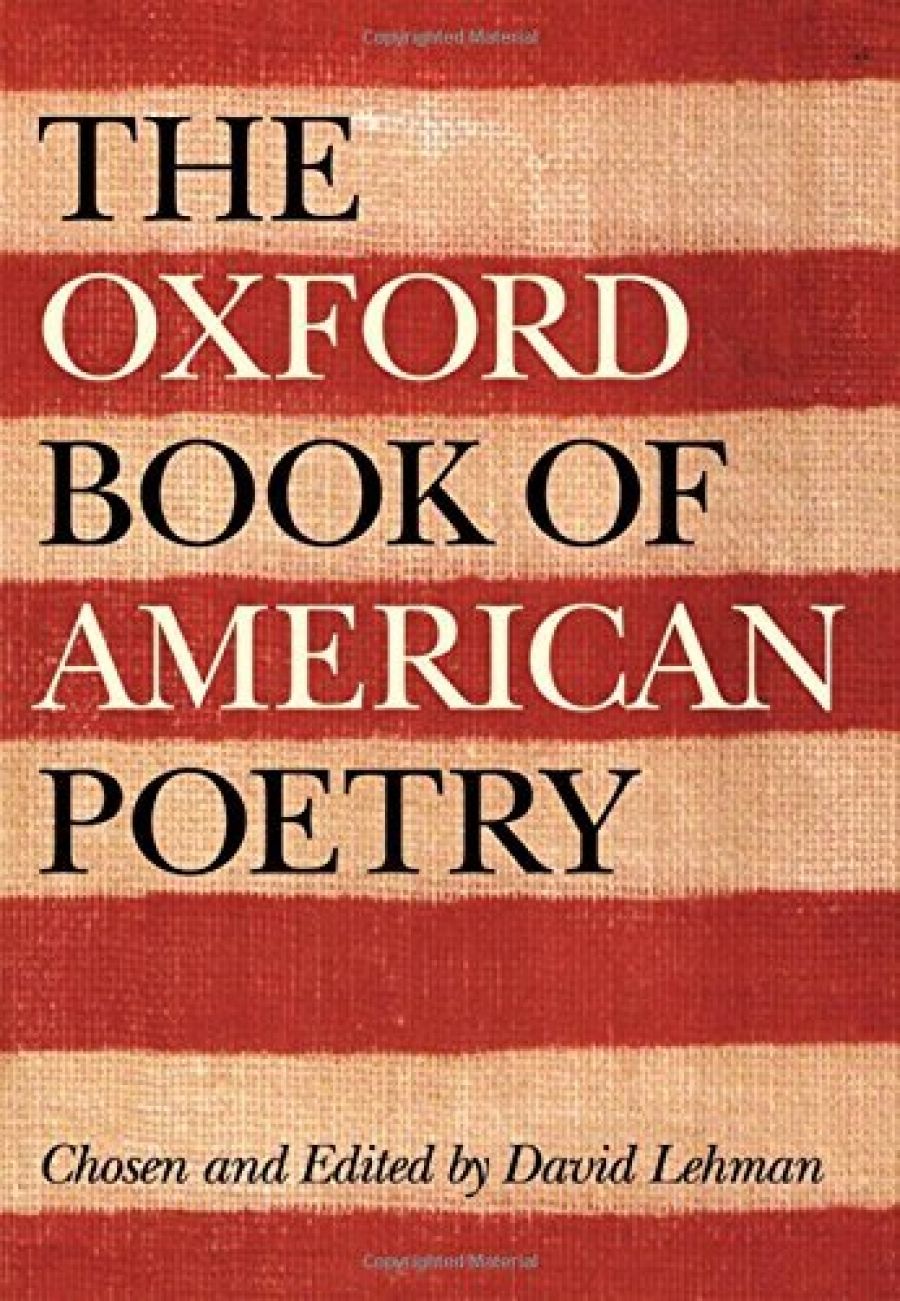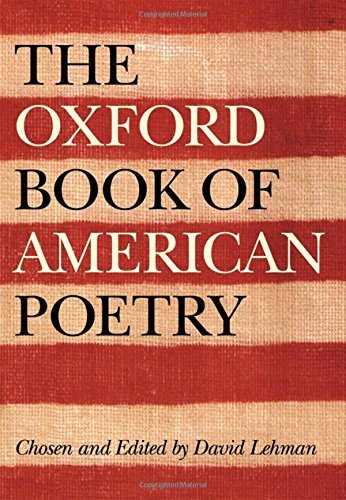
- Free Article: No
- Contents Category: Poetry
- Review Article: Yes
- Online Only: No
- Custom Highlight Text:
Thirty years have passed since Richard Ellmann’s magisterial New Oxford Book of American Verse: a hard act to follow. Now David Lehman – poet and founder of the Best American Poetry series – has produced a successor. It is even longer than the Ellmann, and similarly generous in its individual choices. There is no stinting here, no mark of the tyranny of permissions that blights so many anthologies. Walt Whitman gets seventy poems; Emily Dickinson (who published a handful in her lifetime) has forty-three, including the cautionary ‘Publication – is the Auction / Of the Mind of Man’.
- Book 1 Title: The Oxford Book of American Poetry
- Book 1 Biblio: OUP, $75 hb, 1189 pp
- Book 1 Cover Small (400 x 600):

- Book 1 Cover (800 x 1200):

Like Ellmann, Lehman begins with Anne Bradstreet (1612–72). He adds 142 poets not in the Ellmann, and deletes just eight. Among the newcomers are Gertrude Stein, Edna St Vincent Millay, Laura Riding, Ogden Nash, Charles Bukowski, Kenneth Koch, Anne Sexton and Richard Howard. Lehman, playing it safe perhaps, is sparing with his contemporaries: the youngest is fifty-six (Ellmann’s was forty-two: Leroi Jones, not retained here). Younger recruits – not so prominent in 1976 – include James Tate, Charles Simic and Anne Carson. The organisation is chronological: no fads or themes. Salutary it is to compare the esteemed newcomers with the colossi who preceded them.
The criteria are broader, as you might expect. W.H. Auden is there, with some of the great poems of his American years (that is, half his lifespan). There is more lightness, variety, even humour. Everywhere, the verve and variety of American poetry are stark: from the solipsistic hymns of Whitman, to the whimsy and devilry of Emily Dickinson, to the sonorities and obscure heights of Wallace Stevens, to the chatty audacities of John Ashbery.
Lehman introduces each selection with a pithy, informal biographical note. James Merrill, that elegant poet, he likens to Mozart and Astaire; we learn that Bob Dylan never read Pound because he disapproved of his anti-American propaganda during the war; and of the traffic on the Pond, Lehman observes, ‘it is possible to regard the metaphorical trade of the America [sic] T.S. Eliot for the English Auden as that rare deal that enriches both teams’.
Lehman, like all canny anthologists, springs a few surprises. Dorothy Parker is there (‘Men seldom make passes / At girls who wear glasses’). We hear from Bessie Smith, ‘Empress of the Blues’ (‘When you get good lovin’, never go and spread the news / Yeah, it will double cross you and leave you with them empty bed blues’). Bob Dylan and Patti Smith join the Establishment, with single offerings.
Several of the selections seem more fitting than in the Ellmann. Wallace Stevens has thirty poems, instead of nineteen. Ashbery has five more poems: never enough, but one of them is the long and remarkable ‘Self-Portrait in a Convex Mirror’. Plath is there, fervid, hallucinatory, sui generis. Along the way are many systemic or necessary poems: John Ashbery’s ‘At North Farm’, Elizabeth Bishop’s ‘One Art’, Wallace Stevens’s ‘Sunday Morning’, and on it goes.
There are also casualties. Robert Lowell, so contested now, strangely falls away (nine poems, against Ellmann’s nineteen). This would have been unthinkable in 1976, the year before Lowell’s death. Randall Jarrell’s stocks are down, and the tiny selection is wholly different, apart from the ultimate anthology poem, ‘The Death of the Ball Turret Gunner’. August Kleinzahler, darling of the magazines, is an interesting omission. And if Eliot and Auden earned their poetic green cards, why not Thom Gunn? But these are mere quibbles. Handsomely produced and remarkably inexpensive at almost 1200 pages, this is one anthology that really does belong in the library of every school, university and serious reader. Randall Jarrell once wrote in an essay, ‘the poet’s public’s gone’. Anthologies of this quality, in a sane world, would have them chanting the stuff in the streets.


Comments powered by CComment